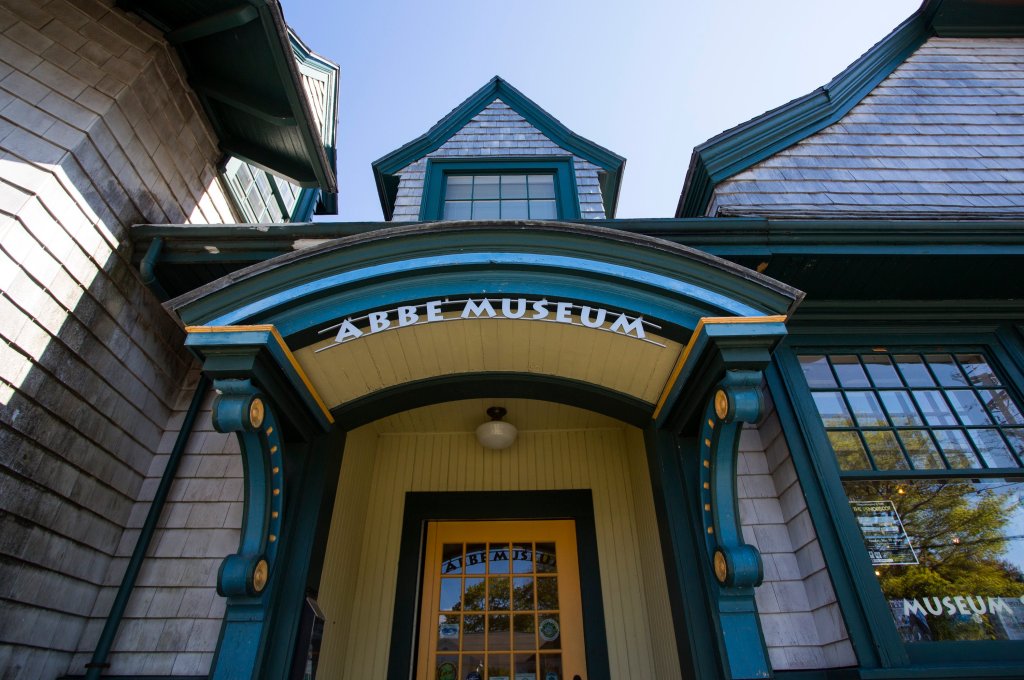
The Abbe Museum in Bar Harbor is working to repatriate funerary items and human remains to the Wabanaki Nations that had been missing from its collection — some unknowingly — for decades.
A human tooth and 16 funerary objects could be returned to the tribes as soon as Oct. 14.
The return is both mandated by the federal Native American Graves Protection and Repatriation Act of 1990 and part of Abbe’s ongoing effort to comprehensively understand and account for the artifacts in its possession.
Once a repository for Native American artifacts, the museum has made a concerted effort in recent years to center the participation of Wabanaki voices in its operations.
“The work of NAGPRA is never done,” said museum curator Aaron Miller.
According to a notice published in the Federal Register this week, the Abbe Museum’s archaeological field school collected a human tooth in 2011 at a site in Gouldsboro.
Human remains previously removed from that site between 1931 and 1936 were repatriated by the museum in 1997. Miller said the last excavation at the site took place a decade ago.
A separate notice, also published this week, details 16 funerary objects slated for repatriation.
Tools, animal hide and fabric material — 15 items in total — were likely removed from a cemetery site in Orland in the late 1800s by archaeologist Warren Moorehead, according to the notice in the Federal Register. The collections ended up at the Abbe in 1997, while the 16th item — a stone plummet taken from a cemetery in Blue Hill — was given to the museum in 1927.
All 16 objects were loaned outside the museum in the late 1990s. The Abbe listed the plummet as missing from its collection and was unaware of the existence of the other 15 objects because the loan had never been recorded.
Brian Robinson, an archaeologist at University of Maine, ended up with the 15 funerary objects. Robinson died in 2016.
The following year, the university hired archeologist Bonnie Newsom, who is Penobscot, in part with a mandate to ensure compliance with NAGRPA. The materials returned to the Abbe for repatriation are a small part of what the University of Maine is now working to return to the tribes, Newsom said.
“This repatriation effort is not only legal, it’s also philosophical from where we stand as a department,” Newsom said.
The four Wabanaki Nations in Maine — the Penobscot Nation, the Passamaquoddy Tribe, the Mi’kmaq Nation and the Houlton band of Maliseet Indians — have an intertribal repatriation committee working with the Abbe to facilitate the return. A Penobscot representative on that committee declined to comment for this story.
Repatriation of stolen artifacts has, at times, been a fraught process. Museums have not always willingly relinquished control over artifacts.
Miller says the Abbe — an organization now with a majority Wabanaki board of directors and its second Indigenous executive director — is working to get more community eyes on its collections and have more conversations about the types of materials that staff should be looking out for.
Reuben M. Schafir is a Report for America corps member who writes about Indigenous communities for the Portland Press Herald.

We invite you to add your comments. We encourage a thoughtful exchange of ideas and information on this website. By joining the conversation, you are agreeing to our commenting policy and terms of use. More information is found on our FAQs. You can modify your screen name here.
Comments are managed by our staff during regular business hours Monday through Friday as well as limited hours on Saturday and Sunday. Comments held for moderation outside of those hours may take longer to approve.
Join the Conversation
Please sign into your CentralMaine.com account to participate in conversations below. If you do not have an account, you can register or subscribe. Questions? Please see our FAQs.